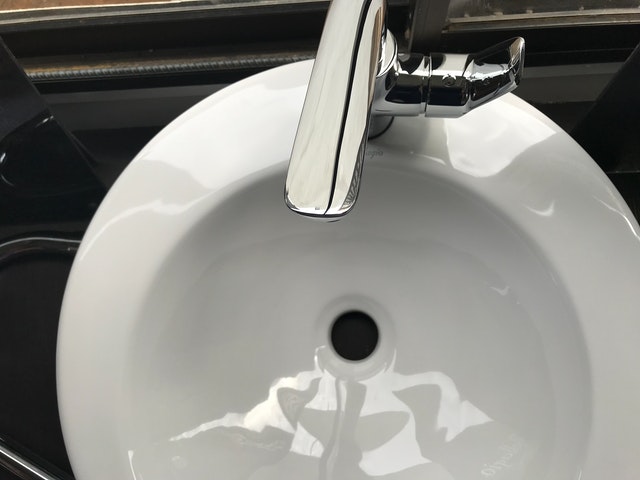Any type can eventually become clogged. It can be frustrating and inconvenient to have a clogged sink, especially when you have a large household. Unfortunately, left alone, a small clog can become worse and turn into a serious problem. Pipe corrosion, slow water draining, and even flooding can result from a single clogged sink. While Denver plumbing services are always available to eradicate a sink clog, it’s helpful to prevent clogs whenever possible to avoid a major plumbing problem. Here, we’ll discuss the most common causes of sink clogs and how you can avoid a Denver plumbing problem.
Food
When it comes to your kitchen sink, food is the most common culprit of clogs. Whenever you send food down your sink, even if it’s just small bits of food, you’re creating the risk for a sink clog. Small food particles will get trapped in the pipe and can accumulate over time, eventually leading to a full-on clog.
To avoid sending food down the drain, the most basic tactic is using a P-trap or J-trap to stop food from going down the drain. The trap will catch the food so that you can throw it away. You can also consider setting up a compost bin to dispose of food waste. Especially for coffee ground and tea leaves, which are very stubborn when they go down the drain, composting your food waste can make a big difference in the condition of your pipes.
Installing a garbage disposal is another method that you can try for avoiding clogs in your kitchen sink. The garbage disposal will grind up any food particles that you wash down the drain, which reduces the chance of a clog in your pipes.
Accumulated Minerals
When minerals dissolve in hard water in your pipes, they can accumulate. Eventually, this creates mineral lumps that won’t dissolve and will quickly clog your drains. To avoid this plumbing problem, you can address the hard water problem. Do this by setting up a water softener in your home to combat hard water. If you’re not able to set up a water softener, your pipes will need to be descaled periodically. Just make sure to contact your Denver plumbers to take care of a mineral clog once it’s already formed, as it can be difficult to remove on your own.
Soap
It may be strange to think that soap could clog your sinks. But, conventional soap contains fat or grease as the main ingredient. When the soap blends with minerals found in water, it creates soap scum, which can be a culprit in sink clogs. Instead of using fat-based soap, look for hand wash with a soap-free formula. You can also have your pipe pressure washed by your Denver plumbers to get rid of soap scum.
Hair
Mainly in your bathroom sink, hair can get stuck in the drains and cause clogs. Hair accumulates over time and will eventually form a solid block in combination with other substances in the pipes. You may need to have your plumber snake the drain to get rid of a hair clog. To prevent this type of clog, you can use a sink guard to catch the hair, and make sure to keep the counter around the sink clean.
Grease
In kitchen sinks, grease is a common cause of clogging. Grease can meld with food particles and form a sticky mass that clogs drains. When your drain is clogged with grease, it can be particularly difficult to get rid of. A garbage disposal alone can’t prevent this type of clog, and you’ll need the expertise of a Denver plumber to get rid of it. So, to avoid a grease clog, throw away excess grease from cooking in the garbage. If any grease goes down the drain, turn on the cold water tap and run the garbage disposal.
Objects
Especially if you have young kids, small objects may mysteriously find their way into your drains. These objects can cause major problems and should be addressed ASAP to avoid pipe damage.
Contact Drain Terrier today for help unclogging drains and other Denver plumbing services.

